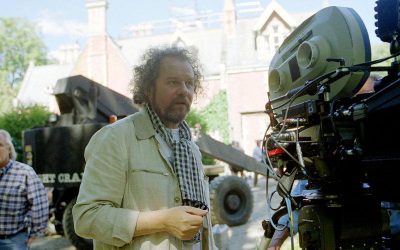John Cassavetes started his career as an actor, most notably in Rosemary’s Baby, but ended up becoming one of the catalysts for independent filmmaking — a director who had his finger on the pulse of artists who wanted to create something outside of the predictability of the studio system. His films didn’t contain big funds, big stars, and big sets, but the absence of these things gave Cassavetes enough space to tell his beautiful stories about the raw human experience, making him a legend in not only independent film, but in all of cinema. Check out a portion of the French documentary Cineaste de notre temps that captures the acclaimed director behind the scenes, talking about working outside of the system.
Most known for his films Shadows, Faces, A Woman Under the Influence, and The Killing of a Chinese Bookie, Cassavetes’ films consist of exposing the human condition as truthfully as possible. It wasn’t all glitz and glamor, idealizing a scenario so that it’d be easier to digest for an audience. He shied away from themes like politics or religion, instead making films that dealt with love, isolation, and trust. Cassavetes once said:
Life is men and women. Life isn’t, say, politics. Politicians are only bad actors grubbing around for power — In my opinion, these people and these small feelings are the greatest political force there is.
His first film, Shadows, which he made in 1959, was financed by Cassavetes for $40,000, and because of its limited release, didn’t find much of an audience. However, it did catch the eye of some critics, which helped him cash in on a Venice Film Festival Critics Prize for the film. Studios also began showing interest, and Cassavetes signed with Paramount to do Too Late Blues and A Child Is Waiting.
The documentary, an episode of a French documentary series called Cinéastes de notre temps (Filmmakers of Our Time,) which originally aired in 1969, reveals Cassavetes great passion for filmmaking, as well as artistic free expression. For him, it wasn’t just about making films, it was about making films that allowed him to say what he wanted to say. He didn’t need a big budget or known actors. In fact, he chose to work mostly with handheld cameras, and with his friends and people he knew, casting many of them in roles often times without compensation.
However, his desire wasn’t to slight his cast and crew, but to allow them to get involved in a project they cared about and had a vested interest in. He also let his actors do quite a bit of improvisation in his films, although the claim that his films were largely unscripted has been exaggerated. Rather, they were scripted, but Cassavetes allowed the actors to interpret the scene and dialog for themselves.
He sums up his approach to filmmaking in the documentary when he says:
We decided we’d come up with a great idea, that we would buy all of our film equipment, but they wouldn’t give us any credit. So, we started our film without any money, and we just used people that would help us to make the film only because of their idealistic attitudes toward filmmaking, which is, in America, a business not an art. So, we’re saying [sound] with your business, and we’ll try to make it some kind of an art — art meaning that we will enjoy ourselves and express ourselves freely
John Cassavetes is one of those filmmakers that speaks to you on a level of humanity that is only reached when you’re a teenager listening to music in your room. His films find the root of what being a human is all about, shines a light on it, and hits record. He’s raw and honest, but is also enthusiastic and passionate. His philosophy on filmmaking is pure — making films for the sheer love of film.
Nobody expresses this sentiment more effectively than director Jim Jarmusch, who recently wrote in an open letter to Cassavetes:
The enlightenment I anticipated from you is being replaced by another. This one doesn’t invite analysis or dissection, only observation and intuition. Instead of insights into, say, the construction of a scene, I’m becoming enlightened by the sly nuances of human nature.
He goes on to say:
Yeah, you are a great filmmaker, one of my favorites. But what your films illuminate most poignantly is that celluloid is one thing and the beauty, strangeness and complexity of human experience is another.
By V Renée











